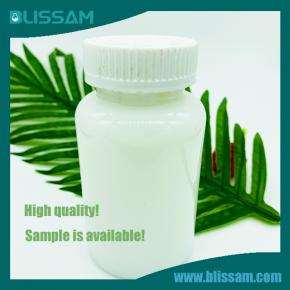Silicone emulsion is a type of emulsion where silicone oil is dispersed in water. It is a versatile and widely used material in various industries, including manufacturing, personal care, and healthcare. Here are some key points to know about silicone emulsion:

1. Composition: Silicone emulsions are made up of two main components - silicone oil and water. Silicone oil is a liquid polymer that is derived from silica, while water is used as the base. 2. Formulation: Silicone emulsions are formulated by mixing silicone oil with an emulsifying agent and water. The emulsifying agent helps to disperse the silicone oil into tiny droplets, allowing it to mix with water. 3. Types: There are different types of silicone emulsions, including water-in-silicone (W/S) emulsions, oil-in-water (O/W) emulsions, and water-in-oil (W/O) emulsions. The type of emulsion depends on the ratio of silicone oil to water and the type of emulsifying agent used. 4. Properties: Silicone emulsions have unique properties that make them useful in various applications. They have a low surface tension, making them spread easily over surfaces. They also have a high water repellency and can form a protective barrier on surfaces. Additionally, they have good thermal stability and resistance to oxidation. 5. Applications: Silicone emulsions have a wide range of applications across various industries. In manufacturing, they are used as lubricants, release agents, and anti-foaming agents. In personal care products, they are used as moisturizers, hair conditioners, and cosmetic ingredients. In healthcare, they are used as lubricants for medical devices and as ingredients in topical medications. 6. Benefits: Silicone emulsions offer several benefits in their various applications. They provide lubrication and reduce friction in mechanical systems, improve surface finish, and prevent sticking and adhesion. In personal care and healthcare products, they provide smoothness and moisture to the skin, and in industrial processes, they help with heat transfer and reduce energy consumption. 7. Stability: Proper stability is essential when using silicone emulsions. They can easily break down if not stored or handled correctly. They are sensitive to temperature and pH changes and can also be affected by the presence of impurities. 8. Environmental Impact: Silicone emulsions have a low environmental impact compared to other chemicals. They are biodegradable, non-toxic, and do not contribute to air or water pollution. 9. Safety Considerations: Silicone emulsions are generally considered safe for use in consumer products. However, some may cause skin irritation or allergic reactions in some individuals. It is essential to follow proper safety precautions when handling and using these emulsions.
10. Quality Control: Quality control is crucial in the production of silicone emulsions to ensure consistency and purity. Manufacturers must adhere to strict quality control measures to produce high-quality emulsions that meet industry standards.
silicone emulsion is a versatile and widely used material with various properties and applications. It is important to understand its composition, types, properties, and proper handling to fully utilize its benefits in different industries.
Contact:
Phone: +86-15957191858
E-mail: info@blissam.com
Whatsapp:+8615957191858
Add: A647, No. 9, Xiyuan Road, Xihu District, Hangzhou, Zhejiang, China
We chat
